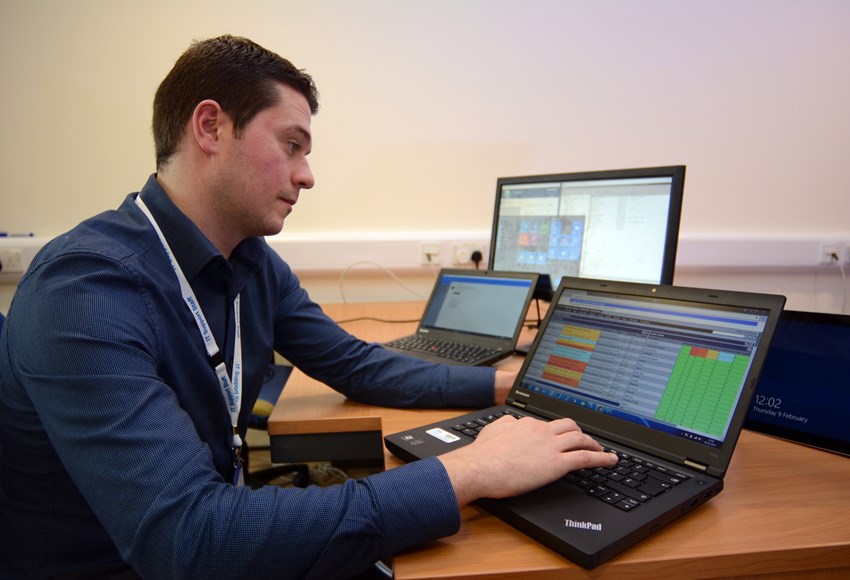Previous
Information security officer
To become an IT support engineer, you’ll need an HND in Computing: Technical Support or an equivalent qualification at SCQF level 8.
In the NHS, IT support engineers help to maintain digital devices, services, and systems across the health service. They provide front-line support and advice to make sure technical problems with hardware, software, and computer networks are resolved at first contact.

To become an IT support engineer, you'll need a good standard of education. Useful subjects include:
Speak to your guidance teacher about subjects offered at your school.

You may find it helpful to get some healthcare experience by doing a work placement or volunteering. You’ll get training, increase your knowledge, and learn new skills. This could help you when applying to university, college or a new job with NHSScotland.
Some IT support engineers start their careers as Modern Apprentices. With a Modern Apprenticeship, you'll get the training and experience you'll need for the role and an industry-recognised qualification.
Modern Apprenticeship opportunities:
Find out more about becoming an apprentice.
If you choose to go to college, you could do the following qualifications to learn some of the skills and knowledge needed for this role:
You can then apply for vacancies on our recruitment website.
IT service desk technicians provide support to people who need help with their computer hardware or software. They are vital to the running of the health service.
Tasks include:
You could also be involved in the implementation and commissioning of new equipment in the NHS. This will include:
You'll need these skills:
As an IT support engineer, you could work with:
IT support engineers work in an office, or remotely.
You will be encouraged to develop your career in the NHS. As well as learning specific to your role, you'll need to complete mandatory training, including:
Your NHS employer will confirm their mandatory training requirements during your induction.
You may also have the chance to study for additional qualifications, including:
Gaining new qualifications will help you when applying for more senior roles, such as IT systems support specialist or IT business analyst.

Discover the skills and qualifications you’ll need for each role and what the work will be like.
Explore careers
Our blog includes how-to guides, case studies, and career resources.
Discover more